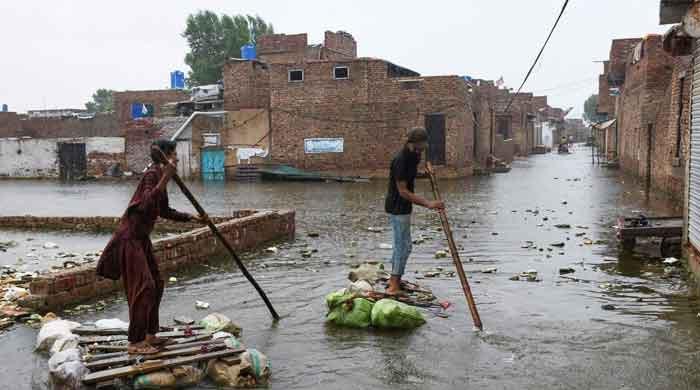The PML-N’s post-judgment playbook
Many are sceptical of a future with political continuity and stable governance
July 31, 2017
The disqualification of Nawaz Sharif, the prime minister, by the Supreme Court will have far-reaching implications for Pakistan’s political landscape.
Even while adopting such a drastic course of action, the court ensured that there were no deviations from the constitutional and democratic procedures, for a smooth political transition to take place post-judgment.
The verdict called upon the president to “take necessary steps under the constitution to ensure the continuation of the democratic process through parliamentary system of government in the country.”
However, given Pakistan’s track record - where breakdown of political orders are frequent and where civilians find it difficult to hold onto power – many are sceptical of a future with political continuity and stable governance.
Immediately after the judgment, political polarisation and anger between the ruling Pakistan Muslims League-Nawaz and the opposition parties, especially the Pakistan Tehreek-e-Insaaf, has increased.
The PML-N is discreet in its criticism of the judgment. It, instead, projects itself as a victim of an internal and an international conspiracy. Their argument is that action was taken against Nawaz Sharif on flimsy grounds. On the other hand, the PTI lauds the judgment as a bold action that will make governance transparent and discourage corruption.
The political divide has further sharpened. Some PML-N activists have filed cases in the Supreme Court about the financial affairs of Imran Khan, Jahangir Tareen and others, in the hopes to getting them disqualified from the National Assembly.
It seems that from now on political rivalries rather than the merit of any political issue will determine the political disposition of the party leaders.
Another notable trend is the use of the superior judiciary to settle scores, rather than seeking assistance from government institutions and democratic processes.
As a result, the parliament and its committees have become partisan. In the coming days, the judiciary could be dragged into more political controversies.
The Pakistan Tehreek-e-Insaaf has much to gain from the judgment, as its political credibility gets a boost. But will the PTI be able to translate these sentiments into votes, come next elections?
That will depend on how the PTI sustains the current advantage and how the PML-N deals with the post-judgment situation.
Internally, the PML-N is also under considerable strain after the verdict. It is important that the new prime minister, it selects, enjoys respect among different shades of opinion in the party.
For the time being, any person nominated by Nawaz Sharif will be accepted. However, in the long run, the personal qualities of the selected person and the dynamics of party factions will come into play.
Nawaz Sharif named his brother as the next premier, following Shahid Khaqan Abbasi's short stint as the placeholder. It is easier to obtain a consensus on a Sharif family member rather than an outsider.
But it is also important to keep our eyes on the interim prime minister for the next 45 to 60 days. The handling of party affairs is critical for the internal harmony of the PML-N for it to be an effective and active political machine before the next elections.
Then there are the socio-economic issues that haunted the Nawaz Sharif government and will continue to challenge the new administration. How these issues are handled will go a long way to determine the political future of the PML-N.
Furthermore, the challenges of extremism and terrorism as well as external diplomatic pressures, especially from India and Afghanistan, will have to be addressed to protect and advance Pakistan’s national interests.
But the most critical challenge for the new government will be dealing with the military’s top brass and maintaining a stable relationship. The military’s input is vital for a country coping with terrorism and external security pressures.
There are a host of challenges, as outlined above. The transition from Nawaz Sharif to a new leader will not be easy or smooth. Keeping the leadership within the party may help to overcome the immediate internal party challenges but in the long run, the PML-N will have to decide if it wants to continue as an exclusive preserve of the Sharifs. For the viability of democracy in Pakistan, can such a dependence on family be sustained?
- Rizvi is an independent political and defence analyst











